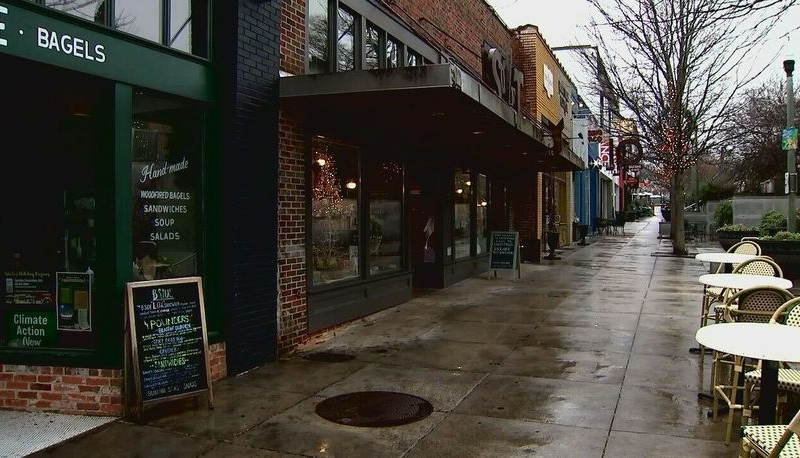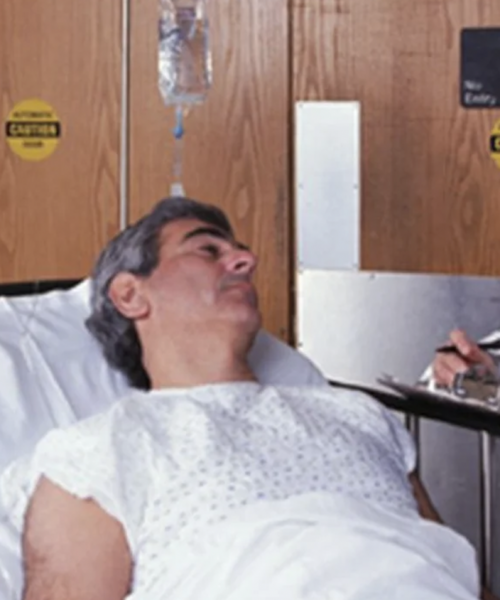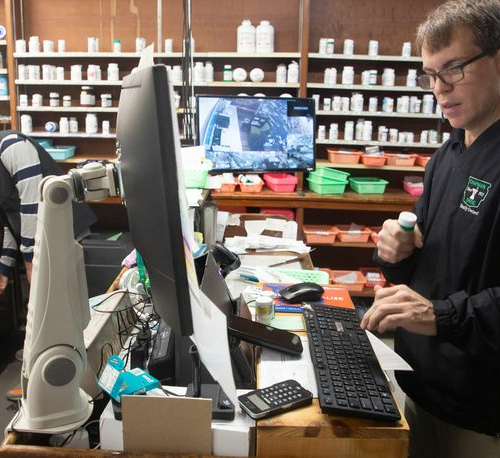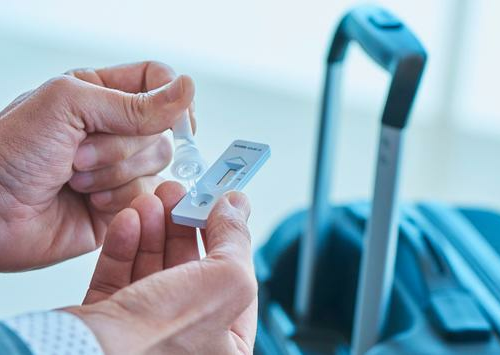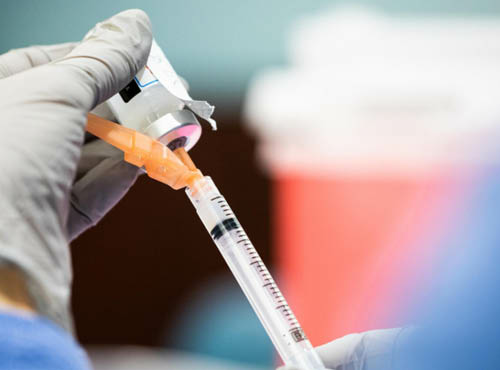By Kelly Yamanouchi, The Atlanta Journal-Constitution
Troy Warren for CNT #COVID-19
It was just before Christmas when Les Mains Nail Bar owner Linda Vo found out that a worker at her upper westside Atlanta salon had tested positive for COVID-19. To keep the virus from running rampant through her staff, and maybe even her customers, Vo made the difficult decision to temporarily shut down that location.
Some of the salon’s clients questioned whether the closure was really necessary. Vo has no doubt that it was. Soon after the first worker diagnosis came a second. And on and on it might have gone.
The virus’s omicron strain is proving to be the most efficient yet at quickly hopping from person to person, regardless of vaccination status. Over the past month, the country and Georgia have shattered records for new daily coronavirus cases. In addition, it appears that the incubation period is shorter, so people are likely to become more contagious faster.
That’s meant even more upheaval in the workplace. The ever-increasing number of COVID-19 diagnoses has left many metro Atlanta employers grappling with severe staffing shortages. And it has left many workers facing financial hardship if the businesses they work for have to close, or if they aren’t able to come to work because they are infected or have been exposed to the virus.

Though preliminary data suggests the latest variant causes milder symptoms, especially in those vaccinated, examples of disruptions on the job are abundant. MARTA announced earlier this month that it wouldn’t be able to provide its normal service on some routes because of staffing issues related to COVID-19. Some metro Atlanta restaurants have temporarily closed due to employee infections. Airlines have canceled thousands of flights due to staffing shortages, including Delta, which said Thursday that more than 10% of its employees have come down with the virus. Even some COVID-19 testing sites in recent days have temporarily closed because of employee absences.
The hourly workers who bore the brunt of the layoffs earlier in the pandemic are also the least likely to have paid sick leave or paid personal time off. Georgia does not require employers to offer paid sick leave. For a while, some employers provided paid sick leave under the Families First Coronavirus Response Act passed by Congress. But that mandate expired at the end of 2020. And, nine months later, a federal tax credit meant to encourage employers to provide paid days off COVID-19 infected workers also expired.
At Les Mains Nail Bar, the nail technicians are independent contractors, which means they don’t get paid sick leave or paid personal days.
The pandemic has been “just a struggle all around — mentally, physically and financially,” said Vo.
Smaller employers, in particular, face struggles if there are positive cases among their employees, said Amber Clayton, who works for the Society for Human Resource Management.
A shop with five employees that has three of them get sick may not be able to operate, Clayton said.
“Companies are desperate,” said Harris Raynor, southern region assistant regional director for the Service Employees International Union affiliate Workers United. “Every workplace that we know of is in this horrible situation of not having enough people.”
On the other hand, he said, “if you let somebody come to work, especially with omicron, and they expose people, this is going to run through your workplace like crazy.”
Ron Hsu, co-founder of Atlanta restaurant Lazy Betty, wrote in an essay in The New York Times that omicron has forced the business to “rethink what it will take to keep the business alive each day while keeping our staff and our diners safe.”
After a staff member tested positive the week before Christmas, the restaurant had to close for a weekend, losing more than $38,000 in revenue, according to Hsu.
Tembi Hove, a banquet server at the Hyatt Regency in downtown Atlanta, said many workers at the hotel have been out sick. Her co-workers’ absences haven’t been too burdensome for her because work isn’t that busy right now, she said. The banquet business relies on corporate events, which are still down because of the pandemic. To keep from getting sick herself, she said, she’s been vaccinated, gotten the booster shot and wears a mask at work.
Hove considers herself lucky. While many in the hospitality industry don’t get paid sick leave, she and her co-workers do — four days a year. Her union, Unite Here, negotiated for an extra two weeks of paid leave for those who are out sick due to the virus.
Before the pandemic, 86% of full-time workers and 45% of part-time workers got paid sick leave, according to the Bureau of Labor Statistics. While 92% of professionals and managers got paid sick leave, only 59% of those in service jobs did.
Small businesses in the service industry that are facing major staffing issues are more likely to increase hourly pay rather than offer paid leave. “Their fallback is always to not encourage people to be out of work. They want people to be in work. They’re so shorthanded,” said Andria Ryan, an employment attorney at Fisher Phillips.
The culture of the restaurant industry, before COVID-19, was “you came to work no matter what … unless you had full-blown flu symptoms,” Ryan said.
That has changed, she said, but employers are still “balancing trying to make sure people don’t come to work sick but making sure they come to work.”
For many workers, it’s a calculation, whether they can afford to tell employers they are sick or have been exposed to the virus.
It’s not always easy for someone to risk giving up their paycheck by telling their employer they have been exposed, said Raynor with the Service Employees International Union affiliate Workers United, especially, “if you’re a worker and you’re making $500 a week or something.”
“”You’re asking people to make an incredible choice here,” said Raynor, whose union represents people who work in cafeterias, distribution centers, manufacturing facilities and at the airport.
Not all companies are allowing workers to use paid leave if they’ve been exposed to COVID-19, and need to stay home, but haven’t yet tested positive.
Melody Johnson, who is a forklift driver at a HomeGoods distribution center in Jefferson and a union steward, said workers there get two weeks of paid leave if they test positive, as well as paid leave if they are notified by the company that they were exposed at work. But if they are exposed outside of work, they get two days of paid leave.
Johnson said she has been exposed outside of work multiple times over the past year and had to wait longer than two days for COVID-19 test results, forcing her to go without pay for the extra days.
“It did concern me because I’m a single parent, so I can’t be out of work for long,” Johnson said.
Other workers are also “very concerned about it,” she said. “They’re scared to tell anybody that they might have any symptoms because they’re scared they’re going to have to be out of work and not get paid.”



























